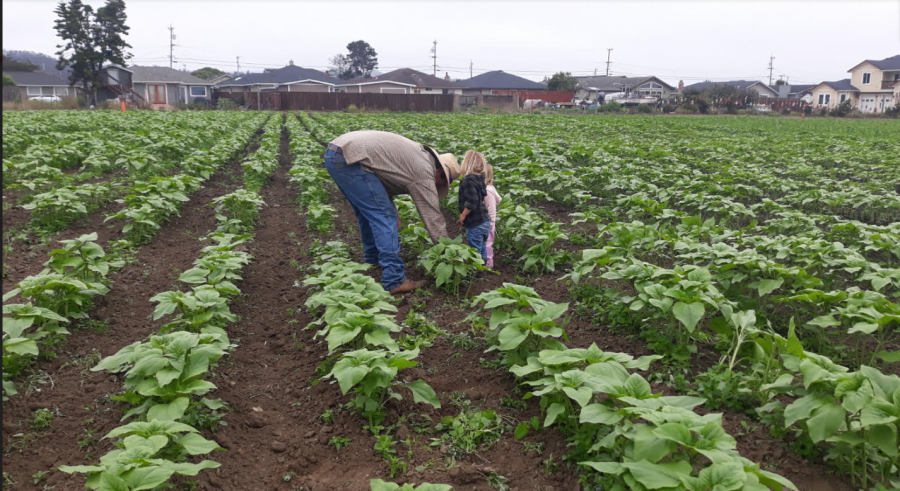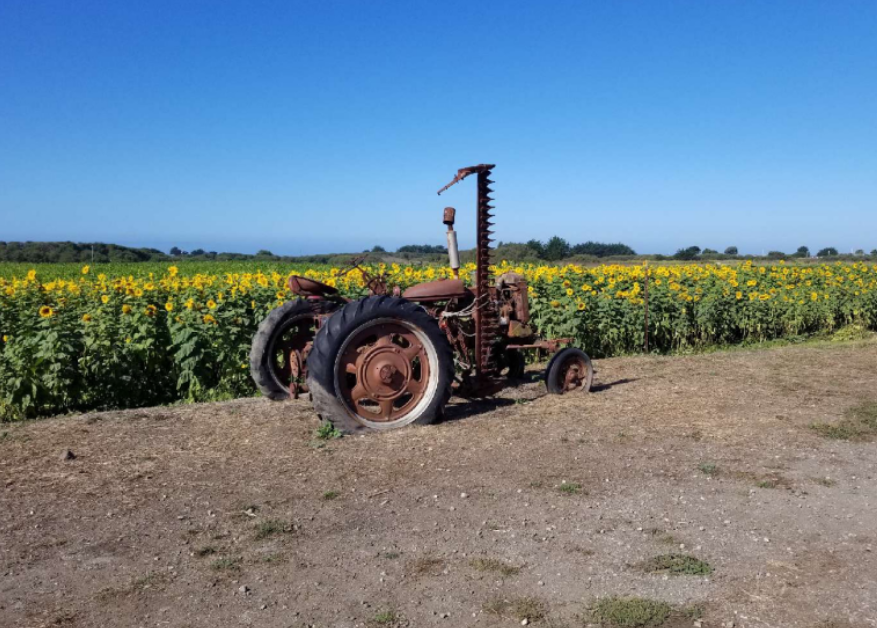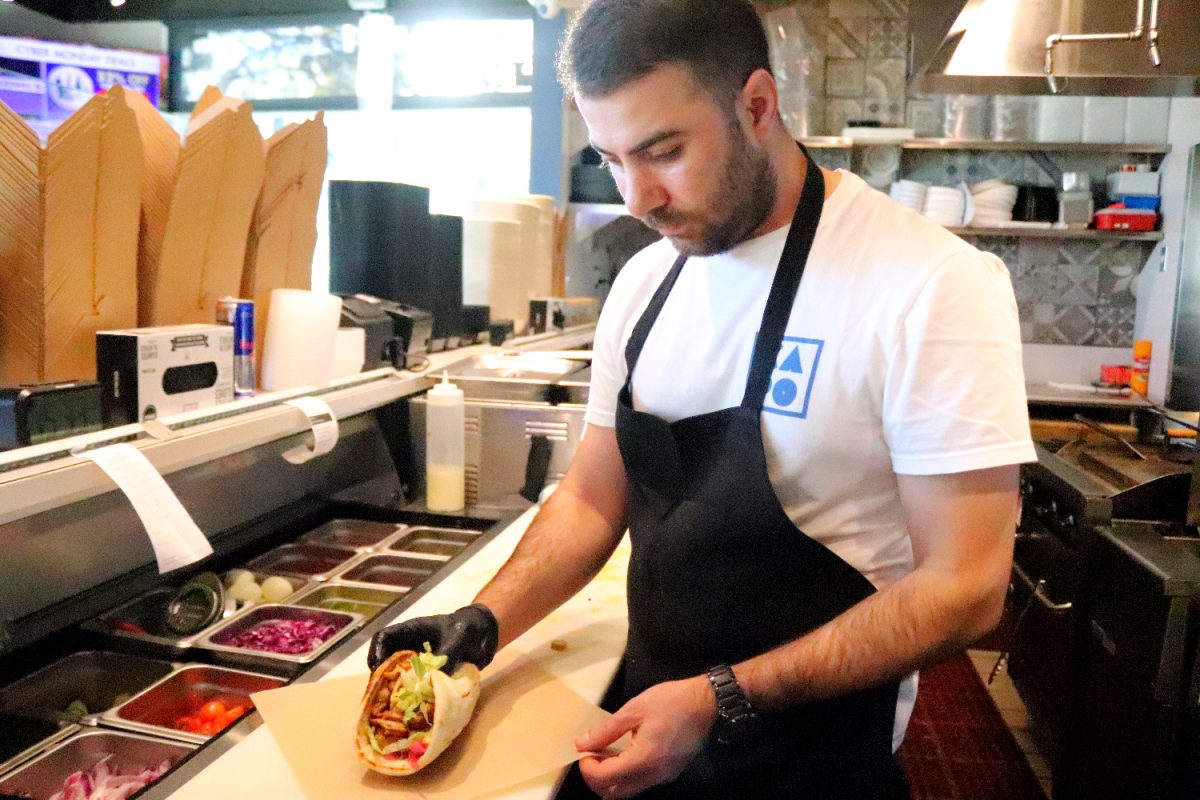Seven days a week. Early mornings. Back-breaking shifts. While the average person in San Mateo County is blissfully unaware of the struggles to place a simple zucchini or leaf of lettuce on their dinner plate, farmers endure them each and every day.
Andreotti Farm, a family farm in Half Moon Bay, has been supplying Bay Area consumers at various farmer’s markets, grocery stores, and restaurants, as well as their farm stand for over 95 years. They have endured harsh coastal weather, land loss, increasing regulations for growers, and severe drought.
The 85-acre farm has been owned and run by the Andreotti family for over 95 years and is currently being managed by Terri and Dino Andreotti, who took the reins 46 years ago. Dino Andreotti’s father, Dino Andreotti Sr., purchased the farm in 1926 after immigrating from Italy. However, due to changing climate and growing urban development in the surrounding area, the future of farming in Half Moon Bay is unknown.
“People have to eat and the future is our main focus. To keep people healthy they need to eat fresh vegetables, and we’re here to provide them, which not a lot of people are willing to do,” Terri Andreotti said.
Among the year’s busiest times are the planting weeks, which occur every three months beginning in January. The planting season begins with leafy greens, root vegetables, bulbs, herbs, and flowering vegetables planted from seed and by seedlings from local nurseries.
“We start planting in January with lettuce, kale, broccoli, cauliflower, peas, beans, carrots, celery, and beets. Then we plant the exact same thing, every three months,” Dino Andreotti said. “Then in March, we start planting our squashes, cucumbers, tomatoes, green beans, and dry beans.”
During the holiday season, farmers have to look ahead and predict the consumers’ needs to match the food trends during that time of year. Each holiday has a unique taste in accordance with the season it is in. After nearly 100 years of experience, the Andreotti’s have come to know precisely how much of each crop is needed to satisfy consumer demand.
“We plant based on holidays and what people will buy. For Thanksgiving, we plant more herbs, potatoes, and carrots, but for St. Patrick’s Day we’ll plant more cabbages to match all of our customers’ needs,” Terri Andreotti said.
While some may see farming as a simple line of work, one miscalculation in the planting cycle or irrigation schedule can lead to a dramatic loss of commodities. Even during simple harvesting seasons, each pumpkin and head of lettuce is essential for small farms like the Andreotti to earn a profit. Due to such a meticulous lifestyle, the farmers have to pay attention to every dollar they spend and think of creative ways to save resources.
The crops are watered for two hours at a time during each three-month planting cycle twice, allowing the soil to remain hydrated enough for vegetables to thrive with minimal water expenditure.
“To just turn the water on it’s not cheap. We have to be very frugal with our water supply and usage. We don’t want to waste it because it costs money to run those sprinklers,” Dino Andreotti said.
The next generation of the farm will soon be entirely run by Frank Andreotti, Terri and Dino’s son. Frank Andreotti has been working on the farm since he was able to climb up on a tractor. Still, his parents are scared that he may not keep their farm up and running due to inflating prices, labor, and water prices.
To help them stay afloat, the Andreottis ask for local support, such as shopping local, keeping nearby areas natural and undeveloped, as well as supporting local farm activities like pumpkin patches and their local driving range.
“The more support we get, the more we’ll stay local. We’ll keep adding to make our farm bigger for just local stuff so people don’t have to depend on bigger stores and imported vegetables,” Terri Andreotti said.
This threat of losing local farmland is not specific to San Mateo County. As growing urban development throughout California and the U.S. forces stores to purchase produce from areas far away from consumers, local farms continue to struggle.
It would have a dire impact on local history, culture, and tradition if the Andreottis were to have to close their barn doors for the last time. Dino was born and raised on Andreotti Farm, and Terri has been there since she was 19.
“I am really excited to inherit this great piece of land, and hopefully, as my parents did, I will be able to pass this farm down to my kids and through future generations,” Frank Andreotti said.

























